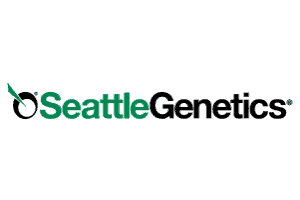
Seattle Genetics and Astellas have claimed approval in the US for Padcev, an antibody-drug conjugate (ADC), as a later-line therapy for advanced bladder cancer.
Padcev (enfortumab vedotin) is indicated for the treatment of locally-advanced or metastatic urothelial carcinoma – the most common form of bladder cancer – in adults who have previously been treated with chemotherapy as well as immunotherapy with PD-1/PD-L1 inhibitor drugs.
The ADC combines an antibody targeting Nectin-4, a cell surface protein which is highly expressed in bladder cancer, with a drug (monomethyl auristantin E) that kills the cancer cell.
Approval comes well ahead of the FDA’s action date of 15 March, and gives ADC specialist Seattle its second marketed product after lymphoma therapy Adcetris (brentuximab vedotin), expanding its business into the solid tumour category.
The company says its sales force is ready to go and it is ready to launch the new product straight away at a cost of between $110,000 and $120,000, per course, depending on a patient’s weight, before discounts that could trim that back to around $90,000.
Data from the phase 2 EV-201 that underpinned Padcev’s approval was presented at this year’s ASCO congress, and showed that achieved an overall response rate (ORR) of 44%, including 12% complete responses and 32% partial responses.
Earlier this year, analysts at Stifel suggested that North American sales of Padcev could reach around $367m in 2024. That would drive a sizeable step up in Seattle’s turnover, given Adcetris is currently bringing in around $160m a quarter.
Meanwhile, Seattle and Astellas are also planning to expand the use of Padcev into earlier bladder cancer treatment, and to that end have a phase 3 trial on the way in first-line metastatic patients.
The move into first-line use is backed by initial results from the phase 1 EV-103 trial presented at ESMO in September, which involved 45 metastatic urothelial cancer patients who were previously untreated and were ineligible for cisplatin based chemotherapy.
In that group Padcev had an ORR of 71% when given alongside Merck & Co’s PD-1 inhibitor Keytruda (pembrolizumab) – around twice the level of the standard fallback therapy carboplatin – with 13% complete responses. PD-L1 expression didn’t seem to affect the outcome of treatment.
The safety and tolerability of the combination was also manageable, according to Seattle, which says side effects don’t seem to worsen with the addition of the ADC to Keytruda therapy.
EV-103 has three arms – Padcev plus Keytruda, Padcev plus chemo, and all three treatments together – and is due to generate final results in 2023, according to the clinicaltrials.gov database.
Keytruda has already been approved for first- and second-line treatment of urothelial carcinoma, and most of the other approved checkpoint inhibitors also have at least one of those indications on the label, including Roche’s Tecentriq (atezolizumab) and Bristol-Myers Squibb’s Opdivo (nivolumab).




